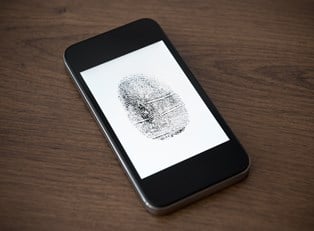Once you are assigned your social security number (SSN), it stays with you for life. However, there are certain circumstances in which you would need a new one. Obtaining a new SSN isn’t easy; first off, you need to have a good reason. Losing your social security card or forgetting your number won’t suffice. You’ll need to state your circumstances—and have a lot of documents to back them up.
When can I change my Social Security Number?
Identity theft has quickly become one of the most prevalent crimes in America. Your credit can be ruined after an identity thief gets his or her hands on your SSN, and thanks to the internet, there are new ways for them to take advantage of you. If you have been a victim of identity theft and you’ve been continuously experiencing difficulties because of it, you can apply to change your number. Keep in mind that changing your SSN may not end all your problems. Your new number will have no credit record, so you’ll have to rebuild your history.
Domestic abuse survivors can also change their social security numbers. If you are escaping abuse, harassment, or life endangerment, you and can apply for a new SSN and card. Your children can also receive a new number, as long as you can provide proof of custody. As with any new SSN request, you’ll have to provide evidence of your reasoning. Court-issued restraining orders, letters from shelters, counselors, friends or family members, and police and medical records are all accepted as evidence. If needed, the Social Security Office will help you find evidence. Domestic abuse survivors can find more information here.
Sometimes two people will accidentally have the same social security number, or problems arise when family members have nearly identical numbers. And some have cultural or religious objection to numbers or number sequences appearing in their SSN. All of these situations are acceptable reasons for changing your SSN.
How do I actually change my SSN?
Unfortunately, you can’t change your social security number online. You’ll have schedule an appointment at your nearest social security office and fill out an application. Along with your completed application, you’ll need to provide the following materials:
- Written statement explaining why you need to change your SSN
- Third-party documentation of why you need to change your SSN
- Original documents (no copies) that prove your age, identity, citizen status or immigrant documentation, and name change, if applicable. Many survivors of manipulative and abusive relationships don’t have access to the original copies of their personal documents. If you don’t have your official documents (such as a birth certificate or driver’s license) used to confirm your identity, you can use any of the following when applying: U.S. or foreign passport, religious record stating your date of birth, green card, employee or school I.D., heath insurance card, or U.S. military I.D.
What happens to my old number?
Whenever you change your social security number, your old one won’t be erased, replaced, or canceled. Your former SSN will still be used in older government and private records, such as previous tax and employer records. In almost all cases, except in duplicate SSN situations, the old SSN will be cross-referenced with the new one.
I changed my social security number. What now?
Starting over isn’t easy. Victims of identity theft won’t instantly recover once they have a new number: the new SSN will have no credit history. However, some credit bureaus will combine the history associated with your previous and new SSN. The Social Security Administration can send you a document stating that you’ve been given a new SSN and will no longer use your old one, in case you need to notify institutions about the change. You won’t have a clean slate, but you’ll be able to move forward.



